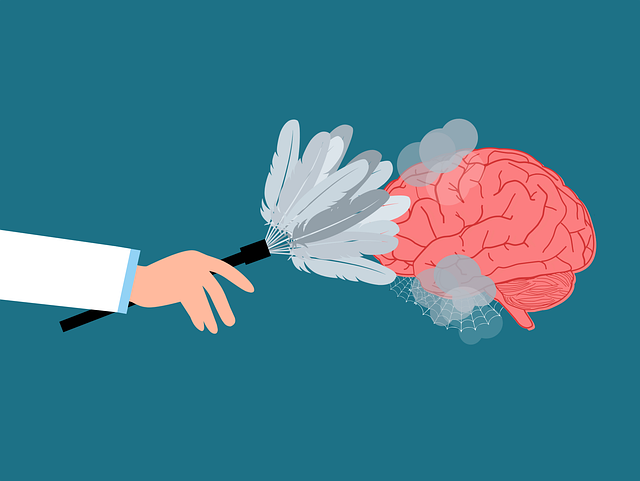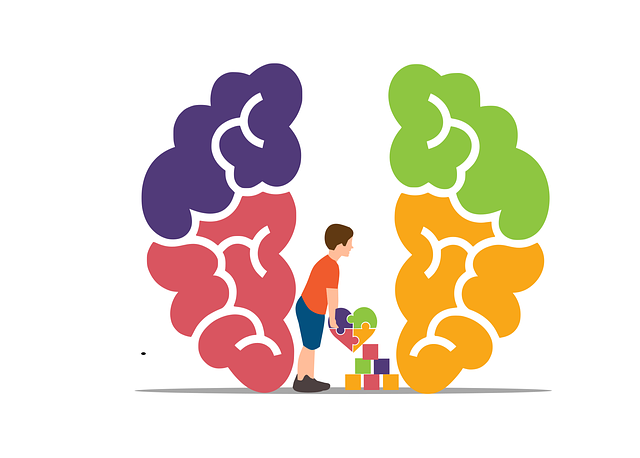Mindfulness meditation, tailored to Colorado Springs therapy settings, is a powerful tool for therapists and clinicians. By fostering present-moment awareness and non-judgmental attention, it encourages self-awareness, emotional regulation, compassion cultivation, and reduces mental illness stigma. Creating a calm, structured environment with reflective surfaces and aromatherapy enhances clinical practice. Guided meditations, including breath awareness and body scans, tailor sessions to diverse populations for inclusive care. Integrating mindfulness practices into Colorado Springs therapy improves emotional well-being, promotes resilience, and facilitates present-moment awareness for long-term client success.
Discover the transformative power of mindfulness meditation with our comprehensive guide, tailored for therapists and clinicians in Colorado Springs. This article delves into the fundamentals of mindfulness meditation, offering a robust foundation for integration into therapeutic practices. From creating sacred spaces to exploring diverse techniques, we provide practical insights for enhancing client sessions. Learn how mindfulness can be a game-changer in clinical work, fostering deeper connections and facilitating positive outcomes.
- Understanding Mindfulness Meditation: A Foundation for Therapists
- Creating a Therapeutic Space: Environment and Setup for Effective Practice
- Techniques and Exercises for Guided Meditations
- Integrating Mindfulness into Clinical Practice: Benefits and Best Practices
Understanding Mindfulness Meditation: A Foundation for Therapists

Mindfulness meditation is a powerful tool that therapists and clinicians in Colorado Springs can utilize to support their clients. It goes beyond simple relaxation, focusing on cultivating present-moment awareness and non-judgmental attention. This practice encourages individuals to observe their thoughts and emotions without reacting impulsively, fostering a deeper sense of self-awareness and emotional regulation. For therapists, incorporating mindfulness techniques into therapy sessions can create a safe and supportive environment, enabling clients to explore their feelings and behaviors in a different light.
By integrating compassion cultivation practices, such as mindfulness meditation, therapists can aid in depression prevention and contribute to mental illness stigma reduction efforts. This approach allows individuals to develop a kinder inner dialogue, promoting self-compassion and resilience. In the fast-paced world we live in, teaching mindfulness offers a simple yet effective method to enhance overall well-being and navigate life’s challenges with greater clarity and grace, right here in Colorado Springs therapy settings.
Creating a Therapeutic Space: Environment and Setup for Effective Practice

Creating a therapeutic space is an essential step for effective mindfulness meditation practice. In your Colorado Springs therapy sessions with clients, consider the environment as a powerful tool to support their journey towards self-awareness and inner strength. A calm, peaceful setting encourages clients to disconnect from external distractions and immerse themselves in the present moment. This can be achieved by incorporating soft lighting, soothing colors, and perhaps some gentle background music or natural sounds. The goal is to make the space inviting and comfortable, allowing therapists and clients alike to focus on the breathing and mental clarity.
For clinicians, establishing a consistent setup facilitates a structured practice. Empathy building strategies can be enhanced when you ensure your therapy room in Colorado Springs feels like a sanctuary. Consider using aromatherapy or essential oils known for their calming properties, such as lavender. Additionally, self-awareness exercises might involve reflective surfaces that encourage clients to observe their thoughts and emotions without judgment. This thoughtful environment creates a safe haven for exploration and reflection, fostering deeper connections between therapist and client during mindfulness meditation sessions.
Techniques and Exercises for Guided Meditations

Guided meditations offer a structured approach to mindfulness practice, often incorporating various techniques to enhance focus and mental clarity. Therapists and clinicians in Colorado Springs can utilize these exercises as a powerful tool for their clients’ well-being. One common technique involves focusing on the breath, where practitioners are guided to observe the natural rhythm of inhalation and exhalation, allowing them to anchor themselves in the present moment. This simple yet profound practice helps individuals cultivate a sense of calm and awareness, which can be particularly beneficial for managing stress and anxiety.
Additionally, guided meditations may include body scans, encouraging participants to pay attention to different bodily sensations without judgment. This exercise enhances mental-body connection and promotes relaxation. Incorporating cultural sensitivity in mental healthcare practices is essential, and therapists can tailor these sessions to diverse populations, ensuring inclusivity and effectiveness. Mental health awareness and risk management planning for professionals also benefit from such techniques, fostering a safe and supportive environment for clients to explore mindfulness.
Integrating Mindfulness into Clinical Practice: Benefits and Best Practices

Integrating mindfulness into clinical practice offers a powerful tool for therapists and clinicians in Colorado Springs to enhance their therapeutic approach. By incorporating techniques like Mental Wellness Journaling Exercise guidance, practitioners can facilitate Emotional Healing Processes and promote Emotional Well-being Promotion Techniques. Mindfulness meditation practices allow clients to develop a deeper awareness of their thoughts and emotions, fostering a sense of calm and present-moment focus.
This ancient technique has gained modern relevance in the therapy realm, providing a complementary method for addressing various mental health concerns. Best practices involve tailoring mindfulness exercises to individual needs, ensuring client comfort and engagement. Regular sessions can help reduce stress, improve concentration, and enhance overall resilience, ultimately supporting clients’ long-term emotional well-being.
Mindfulness meditation, as explored in this guide tailored for Colorado Springs therapy professionals, offers a powerful tool to enhance clinical practice. By understanding its foundational principles and implementing effective setup strategies, therapists can create transformative experiences for their clients. The techniques and exercises outlined here provide a solid framework for integrating mindfulness into various therapeutic approaches, ultimately benefiting both therapists and those they serve. This holistic approach has the potential to revolutionize care in Colorado Springs and beyond.














